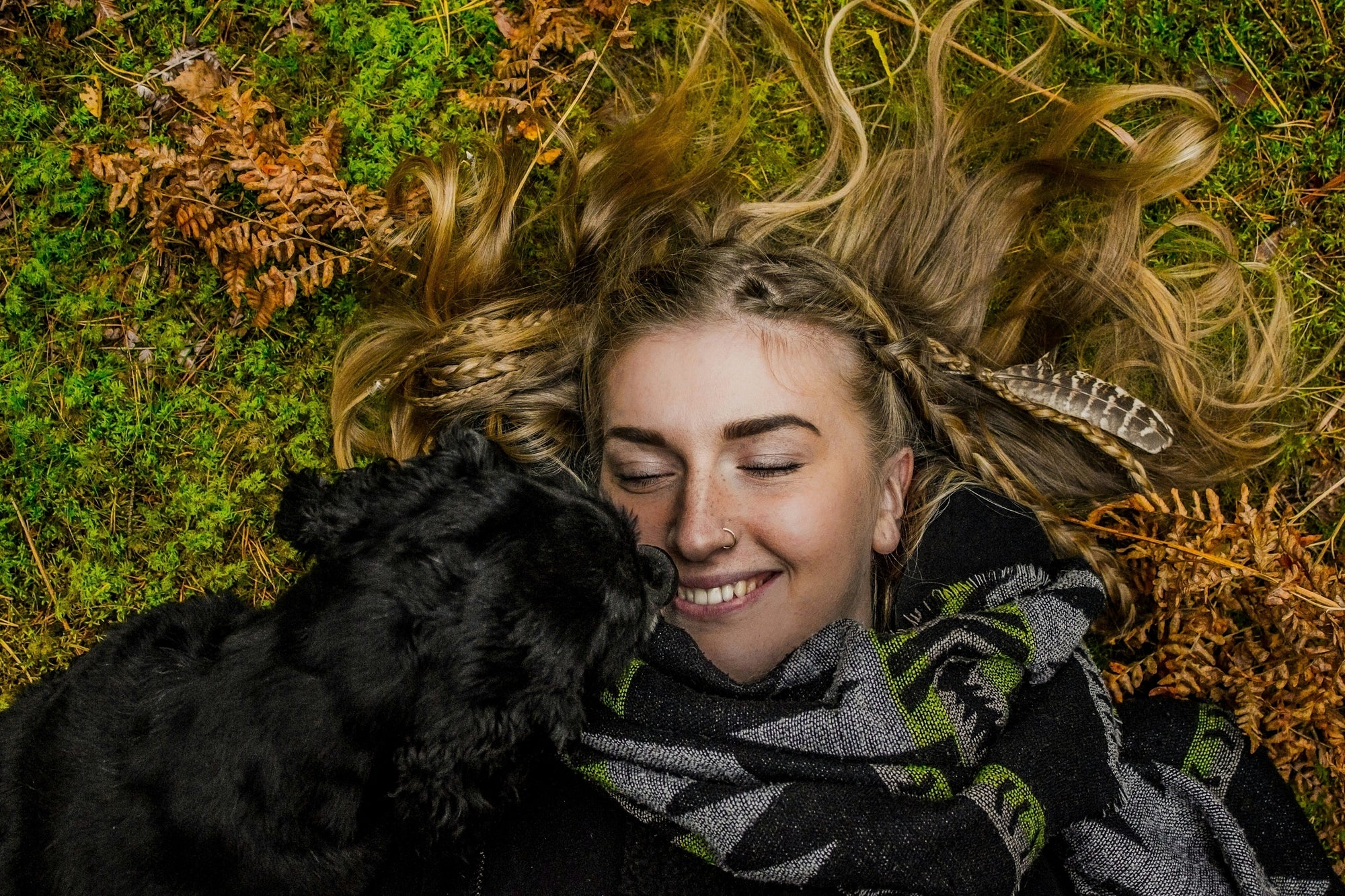


· Dr. Christina Mazulis
We sat down with board-certified veterinary dermatologist Dr. Christina Mazulis to answer some of your most pressing questions about dog skin and coat health. From fragrance safety to coat-refreshing tips, she shares what every modern dog parent should know, especially if your pup has sensitive skin.
Q: Can dogs safely use products that contain fragrance?
Dr. Christina:
They can — but it depends on the details. A dog’s skin (and nose!) is much more sensitive than ours, so not every fragranced product is safe. The key is making sure it’s made specifically for dogs, with gentle, tested ingredients.
Spritzing your pup with Chanel No. 5? That’s a big no. Human perfumes are too strong and often contain ingredients that can irritate their skin or overwhelm their senses. But a light, fresh scent formulated for dogs can absolutely be part of their grooming routine, as long as it doesn’t come at the cost of their comfort or skin health.
Q: What causes that classic “dog smell”?
Dr. Christina:
That familiar scent is usually a mix of natural skin oils, yeast, bacteria, and whatever your pup picked up on their last adventure outside. Dogs don’t sweat like we do, but their skin and coat can trap odors over time, especially if they have skin folds, longer coats, or a knack for mischief.
Pro tip: A little doggy scent is totally normal. But if the smell is strong or lingers even after grooming, it could be a sign of a skin issue, infection, or allergy. If something seems off, check in with your vet.
Q: What ingredients should dog parents avoid in grooming products?
Dr. Christina:
Think of your dog’s skin like your favorite cashmere sweater — gentle, sensitive, and easily irritated if you don’t treat it with care. That’s why I recommend steering clear of:
These can strip natural oils, disrupt the skin barrier, and trigger irritation or allergies. Instead, look for products that are pH-balanced for dogs and made with simple, clearly labeled ingredients. If you can’t pronounce half the label, it’s probably a sign to keep looking.
Q: What’s one simple thing dog parents can do for a healthier coat?
Dr. Christina:
Brush your dog, even if they have short hair.
Regular brushing helps distribute natural oils, supports healthy circulation, and gives you a chance to spot early signs of dryness, dandruff, or irritation. Plus, most dogs love it once they get used to it. Think of it as a mini spa day and bonding time rolled into one.
Have more questions for Dr. Christina?
We’re so grateful to Dr. Christina for sharing her expertise! Got a question you’d love her to answer? Drop us a note on Instagram @ozzeau — we may feature your question in a future post.
About Dr. Christina Mazulis
Dr. Christina Mazulis is a Board Certified Veterinary Dermatologist and Ozzeau’s resident skin health expert, bringing clinical expertise and a passion for personalized pet care to every article she writes.
This article is intended for informational purposes only and does not constitute veterinary advice. For any concerns about your dog’s health, consult your veterinarian.
Your cart is currently empty.